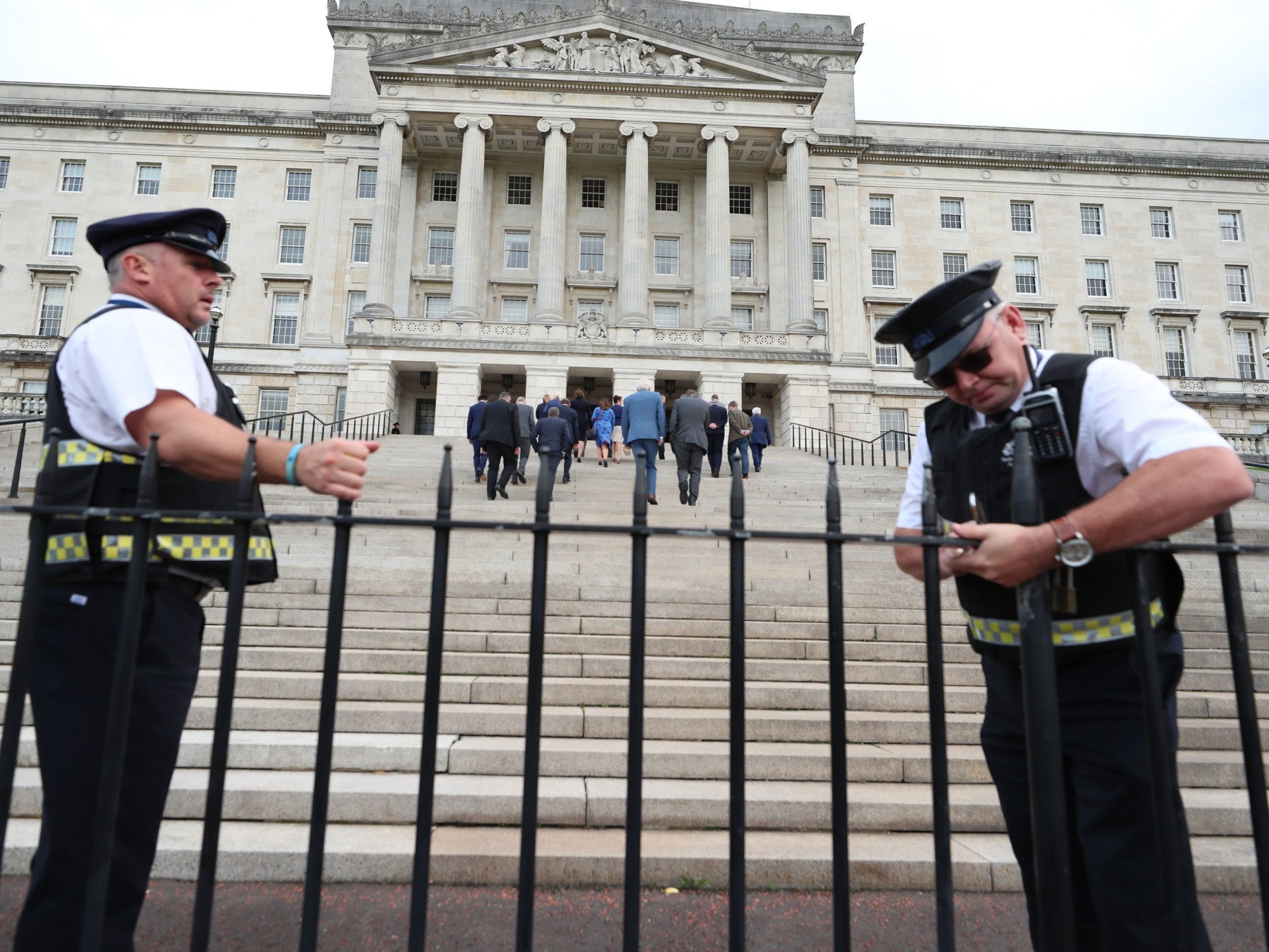Northern Ireland has now been without a government for 2 years – enough is enough
Our political representatives are engaged in an appalling dereliction of duty just as we are poised to face the brunt of Brexit. The people of Northern Ireland deserve better


A lot has happened since 9 January 2017.
Donald Trump took office, and we saw the end of Mugabe and the Castros. North Korea raged, Grenfell burned and #MeToo rocked Hollywood. We’ve had three terror attacks, a Royal wedding and a Royal baby, one disastrous general election and a Brexit deal (for now).
In all that time, Northern Ireland has been without a government – a shameful world record which we snatched from the Belgians after 589 days.
It has now been two whole years since power-sharing collapsed at Stormont after the working relationship between Sinn Féin and the DUP broke down. An ensuing election returned them as the two largest parties, and since then, various attempts to bring them back together at the negotiating table have proven futile.
On Valentine’s Day 2018, the two parties were about to sign off on a deal when details of an Irish Language Act contained within it were leaked, angering grassroots unionists. The DUP performed a screeching U-turn, and it was all called off.
Sinn Féin point to this as evidence that they agreed to a deal, and to their credit, it was one in which they had conceded ground. Marriage equality was not on there as a priority, and as time has passed, their demand that Arlene Foster not be returned as First Minister has also waned.
The Irish language is now their red line. They won’t make a deal without it, and the DUP won’t make a deal with it. As a result, we have a stalemate. Both sides appear to be in a collective shrug which says, “We’d do a deal tomorrow...it’s the other side holding it up.”
After two years, that just isn’t good enough.
The art of compromise – which is on life support in Britain, and seemingly lost forever in the US – must be rediscovered in Northern Ireland, because we have no way forward under the Good Friday Agreement unless Sinn Féin and the DUP can work together again.
When he pulled the plug on Stormont, Martin McGuinness said there could be no return to the status quo, a line which Sinn Féin now stick to dogmatically. Indeed, things were far from perfect.
The DUP resisted social progress and the equal recognition of Irish culture, often misusing the petition of concern to keep things as they desired. An inquiry also exposed how badly the party handled the failed RHI energy scheme. Furthermore, there was the alarming revelation that civil servants were discouraged by both parties from taking minutes at meetings.
Evidently, a fledgling institution was beset by corruption and mutual distrust. But fixing it must be a better option than absconding. Not everyone will get what they want, but it is surely better than this current alternative: an absence of basic democracy, with basic bread and butter issues left abandoned.
In November it emerged that more than 160 pieces of legislation – on everything from health and business to policing and the environment – have piled up at Stormont because there are no ministers to make decisions.
One department had to devise a flowchart to help civil servants determine the limits of their powers, as unelected officials attempt to keep the lights on without making political decisions.
The human cost is being felt everywhere. One principal told the Nolan Show that his budgets were so stretched, parents were having to donate toilet roll to the school. Anger is being voiced on social media, on the airwaves, and on the streets. This week, one man walked 90 miles from his home in Enniskillen to Stormont as a protest.
For its part, the British government has left Northern Ireland woefully neglected. Over the past two years, the Irish government have been defending us more effectively, with a Brexit strategy which considers the interests of the island as a whole. Westminster politicians have shown disinterest and downright ignorance.
Last January, Theresa May appointed Karen Bradley as the Secretary of State for Northern Ireland. Bradley later made a stunning admission that she didn’t know “people who are nationalists don’t vote for unionist parties and vice-versa.” It was therefore a surprise to no one that she has been unable to strike a successful deal in one of the world’s most divided post-conflict societies.
In fact, it has been months since any visible attempts were made to get back to the table. To all intents and purposes, they have simply given up.
Of course everything is on pause while Brexit demands our attention. But it’s hardly the case that Northern Ireland is a separate issue. As the UK has come to realise – at a glacial pace – one is inextricably bound up in the other.
In truth, the fate of Northern Ireland in Brexit was never going to be decided at Stormont, but a sitting Assembly would at least have allowed more voices to be heard in this crucial debate.
Instead, the DUP have cosied up with Tory Brexiteers at Westminster, trying to bully the prime minister into ditching a deal which gives Northern Ireland special status. It's no secret that they prefer the option of a harder Brexit which will whack us economically and risk a return to the borders of the past.
Meanwhile, the majority in Northern Ireland (who don’t want Brexit at all) have no voice in Westminster, as the abstentionist Sinn Féin have a monopoly of nationalist seats (which, yes, they have a mandate for). Instead, the party exerts influence in the head-to-head meetings they command in Brussels with EU officials.
On May’s deal, they are taciturn; recognising it as the best outcome from a bad situation, but stopping short of an outright endorsement. In the event of a hard Brexit, polls have shown support for Irish unity would dramatically rise – something Sinn Féin are ready to seize upon.
But whether you want Northern Ireland to remain in the UK or to become part of a united Ireland, in the short term, Stormont needs to work.
Devolution is now a reality across the UK, and London wants Northern Ireland to remain relatively autonomous. On the other side, no one in the Republic of Ireland will want to join up with neighbours who are incapable of looking after themselves. After all, are we to believe that the differences between nationalists and unionists in the north will simply disappear in a new Ireland? Reconciliation and cooperation are essential in any narrative of the future.
It is clear now that neither side will even think about getting back to that hard work this side of 29 March (or for however long Brexit Day is delayed). That in itself is an appalling dereliction of duty. Is it too much to expect that Sinn Féin and DUP representatives should be in a room together, every day, bashing away at this until they work something out?
After decades of conflict, in 1998 the people of Northern Ireland voted for power-sharing at Stormont as a way of securing a peaceful and prosperous future for their children. Today the next generation is seeing that being squandered. The people of Northern Ireland deserve better. Enough is enough.









Join our commenting forum
Join thought-provoking conversations, follow other Independent readers and see their replies